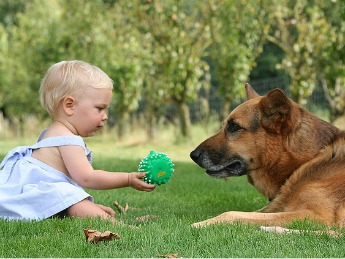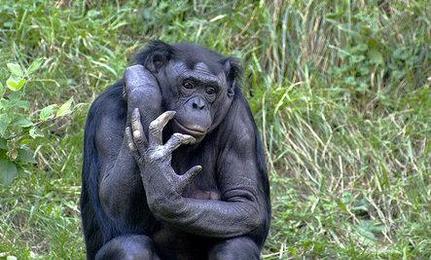Whether you are an expectant parent or grandparent, a new baby can bring joy into your life. But what does a newborn mean for the animals you have lived with for years?
Dogs used to adults may not recognize babies as the same species. Newborns and toddlers sound scary, smell funny, and seem to evict companions from your lap because they divert a favourite human’s attention. Here are tips to help you persuade your dogs to welcome babies as part of their family.
Before the Baby Comes Home
- Prepare in advance. Expectant parents have nine months to get the companions ready for the new arrival. Dogs do not appreciate sudden change so figure out how the baby will affect routine and start with gradual adjustments. For instance, the baby’s sleep and feeding schedule probably will impact the dog’s playtime, potty and walk schedule.
- Perhaps the nursery room will become off limits. Make changes gradually. Allow companions to investigate and explore rooms and changes so they become the new “normal” and he does not feel left out.
- Dogs may swipe baby toys. It is a good idea to use a baby gate to control your companion’s access to the baby’s room when you cannot supervise. Keep toys out of doggy mouth range.
- Baby cries can sound like prey distress sounds and entice your dog’s hunting instincts. Get your pet used to baby sounds ahead of time. Play pre-recorded infant cries so the dogs know what to expect. When companions investigate the sound, reward calm behaviour with praise and treats or petting. If the noise gets your companion upset, try playing a favourite game before you switch on the noise so he associates the sound with something good.
- Make yourself smell like the baby. Pets identify safe family members by smell, so if you wear baby powder or lotion weeks in advance, the baby will already smell like you when it arrives. That way, your dog associates these smells with someone he already knows and loves.
When the Baby Arrives
- When the baby arrives, bring a blanket scented with the infant home from the hospital in advance, if possible. That way the companion gets an advance introduction to the new kid’s smell.
- Once the newborn comes home, you can make your baby smell like the companion to help smooth introductions. Pet your dog with the baby’s socks and then have the infant wear them (fur-side out, of course!). That way the baby already smells like the companion.
- Dogs usually are fine with babies, especially when you treat the introduction as a normal event and not a huge deal – even though it is a fantastic event for you! Ideally the companion should understand a new baby is a normal part of his life. Do not force the introduction. But when companions act interested, allow a careful sniff of the baby’s foot, with that scented sock. When the dog gets to see, smell and gently touch that weird, wonderful creature – HIS NEW BABY! – he will learn there is nothing to fear.
- Praise your companion for acting confident and calm around the baby. Create a special companion-baby time when the dog gets neat attention or treats but only when the baby is within sight. Try tossing a doggy treat while you feed the baby. This helps the companion associate fantastic things with the baby’s presence.
- As the infant becomes a toddler reaching out to grab fur and tail, teach the baby to respect the companion, too. Providing proper introductions will prepare you, the child, and the companions for a peaceful and even joyful time together. And that is a relationship that will last a lifetime for them all.
Adapted from an article by Amy D. Shojai





